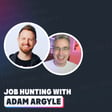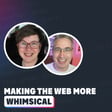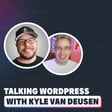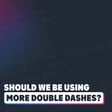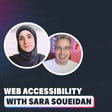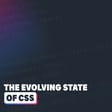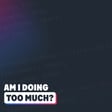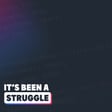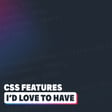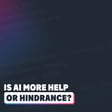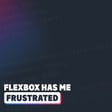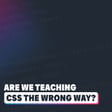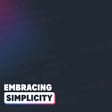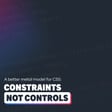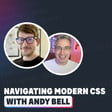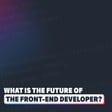Become a Creator today!Start creating today - Share your story with the world!
Start for free
00:00:00
00:00:01

Are you sure you want to freelance?
I'd love to know what you think of this longer version of the podcast: Cast your votes right here.
As for the episode itself, in this one I talk about how people sometimes romantisize the idea of freelancing, and sometimes get into web development with the idea of becoming a freelancer, without realizing everything it entails.
What I’ve been up to this week:
Other awesome stuff around the web:
- Using REM Doesn't Make Your Website Responsive - Here's Why by Caio Marcellus Cabral
- Best Practices When using Fonts on the Web on Joy Of Code
Transcript
Podcast Introduction
00:00:00
Speaker
Hello, my friend and friends, and welcome to my podcast, General Musings. My name is Kevin and this podcast is an audio version of my weekly Sunday newsletter. This week we'll be talking about how people sometimes romanticize the idea of becoming a freelancer and how it's not always as glorious as it sounds.
00:00:18
Speaker
Before we dive into the main topic though, with this podcast being a new idea, it's a bit of an experiment for me. So first of all, a very big thank you to everyone who's already been listening to it, which is already way more people than I ever expected.
AI vs. Human Delivery in Podcasting
00:00:30
Speaker
I'd also really like to thank those who have rated it on their podcaster services that they're using, because apparently this is a big signal to the podcast providers out there to rank something. So if you do have a free moment, I would really appreciate it if you could take the time to rate it.
00:00:45
Speaker
Now I started off this by using AI to generate the audio based on my newsletter script, but I've now switched to reading it out myself. The AI was impressive, and you can hear it if you listen to the first few episodes, but it took a fair bit of tweaking and a few rounds of generation to get a version that I was happy with, so I figured that reading it and doing a small bit of editing wouldn't actually be any longer than it was with what I was doing with the AI. Plus it would probably sound a little bit better and not get some of those weird things that it would do sometimes.
Experimenting with Podcast Formats
00:01:12
Speaker
But with this being an experiment, last week I decided to add the other stuff from around the web section from my newsletter into the podcast. And this week I'm also going to add the what I've been up to this week section from my newsletter as well. And I'd like to know if you prefer the shorter version with just the intro, the other one where I have the other stuff or this full longer version, but I'll talk more about that at the end of the podcast.
Realities of Freelancing
00:01:34
Speaker
For now, let's get back onto the topic of freelancing, which I want to talk about because many people in my audience tell me they're learning web development so they can become a freelancer. I get it. There's a lot of things that sound fantastic about freelancing. You get to work from home, you get to set your own hours, you don't have to worry about your boss telling you what to do.
00:01:52
Speaker
But a lot of people don't realize what freelancing actually entails. First of all, it's really hard to find your first clients. This is a bigger stumbling block than a lot of people often realize until they finally start looking for those first clients or those first jobs and they're just stuck and they can't find any work.
00:02:10
Speaker
Between all the freelance sites that are out there, which first of all are often a race to the bottom when it comes to pricing, but then there's also like local opportunities and people you probably know, you think there's probably a ton of work that's just waiting for you, but it's not that easy. And the problem isn't that there isn't work out there waiting, there definitely is. It's that when you're learning to become a web developer, those skills that you're learning don't translate to getting potential clients to hire you.
00:02:36
Speaker
Once you land some work, being a talented web dev pays off because a lot of freelancers' bread and butter is return clients and referrals and being good at what you do definitely helps with that. But basically, no one out there cares about what technology you know, so trying to land a freelance contract because you're an expert React developer means nothing to most of the people who are doing any hiring of freelancers.
Freelancing vs. Traditional Jobs
00:02:58
Speaker
When you're trying to land a job, freelancing is not really about how good you are, but how good you are at selling your services. As I said, being good pays off in the long run, because if you do a good job, you get recurring work with existing clients as well as referrals, but you need to get those clients first. You need to talk the client's language, find solutions that work for them, and sell them on how you can make something amazing for them, and you also then need to sell them on why that solution is better than the other, often cheaper solutions that other people are offering them.
00:03:27
Speaker
In other words, you need to be a salesman, not a developer. And then, once you finally get that salesman hat on, you're doing good at that, you're finding clients, well then you also need to be an accountant and a manager and a whole bunch of other things as well. A little while ago, I did a series of interviews on YouTube where I talked to people who were successful freelancers and while all of them had very different stories about how they made it, they all did share a few commonalities as well.
00:03:51
Speaker
One of those commonalities was that most of the time they weren't hacking away at code, but they're doing everything else that's involved in running a business instead. I know some people turn to freelancing as a way to gain experience before landing their first job. And if your plan is to get into the job market, that can be a really nice way to have some stuff on your resume that helps you stand out over people who haven't done any work yet. But also the people that I talked to in that interview actually recommended that you try and get a job before you start freelancing because there's so much you can learn when you're working at a company.
00:04:20
Speaker
The other thing to consider is that while it can be really rewarding to be your own boss and not have to listen to other people, you're now the boss and you need to sort of tell yourself what to do. But most successful freelancers also end up being the boss of other people, acting more like a contractor, bringing in subcontractors to help get the job done.
00:04:38
Speaker
And of course, if you're your own boss, you do get to set your own schedule, but that can often be more work than you'd have a regular job, especially in the early days and also during busy periods. And speaking of busy periods, on top of all of that, you also have to worry about big fluctuations in income as well as you cycle through those busy and dry periods. And of course, even when you're going through those busy periods, there's the stress of finding more work because you know the dry periods are likely to come at one point.
Resources for Aspiring Freelancers
00:05:04
Speaker
And I'm not saying all of this to try and dissuade you from becoming a freelancer if that's what you really have your mindset to. I just want to raise awareness of everything else that's involved because so many people who are starting off in web development and who have this idea of becoming a freelancer and working from home and all the cool things that entails, they don't actually realize all of the sort of other things that are involved with it and how hard it can actually be to be successful.
00:05:26
Speaker
So if you are looking at getting into freelancing, I'd really recommend that you check out the playlist that I have linked in the description of this episode. That's the interviews with the freelancers that I did do, just so you can gain some insights. They had so much knowledge to share and it really could be useful for you to understand all the work that goes into it and different things these people have done to be successful.
Creative Coding Projects
00:05:46
Speaker
And speaking of things you can find on my channel, what I've been up to this week is, well, I put out a few fun videos, actually. The first one, taking a look at a CSS only confetti explosion.
00:05:55
Speaker
A little while ago I did a video with Amit Sheen where he taught me how to do CSS particle animations and the first thing that came to mind when we were going through all of that is to do a confetti explosion celebration when a user clicks on a button and so I wanted to create it, I really enjoyed making it and I wanted to make a video on that.
00:06:12
Speaker
Before I published the video though, I shared my first attempt over on Twitter and Amit actually let me know that there is a way to trigger the animation without JavaScript as well. So near the end of the video, I removed the event listener that I was using to trigger the animation and I replace it with a CSS only solution that I'm not even going to attempt to explain in an audio only format.
00:06:32
Speaker
The CSS-only version of it might not be something that you'd want to put into production, especially in this specific use case, but there's some really fun things you can learn from it. And I really had a lot of fun putting that one together. The other video that I put out that's proving to be really popular was actually because I found a code pen by Gajan Gasparian, whose code pen is often a source of inspiration. And they had a really fun hover effect where the card would sort of tilt backwards, but then a second image would slide up out of the card or sort of pop up out of the card.
00:07:00
Speaker
like how it looked and I decided to make a video on it. But for this one, rather than trying to make a polished tutorial, I thought it would be a nice addition to my can I make it series, where I record myself going in and creating something without any planning at all. It's my first time trying to build it. And a big part of it is sharing my thought process as I'm trying to figure things out. And of course, along the way, I invariably make some mistakes. So I look at how I can fix those as well.
00:07:24
Speaker
During this one specifically, I talk a bit about how my code is a little bit of a mess, but right now how like this is a first draft. And the idea is just to make sure that I can even get this idea working. And along the way, I mentioned how I would approach refactoring it later on if I was actually going to use this in production.
00:07:39
Speaker
Late on in the video, I also realized I probably didn't take the best approach to creating it, but I managed to get it work. It's a first draft. It's sort of a proof of concept. And so for all of that, I was really happy with the end result. As usual, I had a short this week as well, where I explored the benefits of using gradients over SVGs when you need a pattern.
Design Trends and Resources
00:07:56
Speaker
Someone in the comments asked about performance issues you could have with gradients since the browser actually needs to paint them versus using an SVG. But I honestly, unless you're doing something really crazy and even then, I don't really think you'd run into any issues with them most of the time. And now moving on to other awesome stuff around the web, I have a bit of a typography theme to the the links I'm sharing this week.
00:08:15
Speaker
The first one is how using REM doesn't make your website responsive, and here's why. This is a fantastic article by Ciao Marcellus Cabral who explores why we should use REM instead of pixels for font sizes, also why REM isn't the solution to making things responsive, but also how we can actually make things responsive for typography. It's a really in-depth and well done article I'd really recommend that you check it out.
00:08:38
Speaker
And the other one, speaking of fonts and typography and all of that, is one that if you'd like to know more about the technical side of things and how fonts on the web even work, how you can host your own, how you can deal with flashes of font-style content, more about variable fonts, how to subset your fonts, and a whole bunch more, there's a really good article on the Joy of Code website that has you covered. And if you don't know the Joy of Code, there's lots of fantastic stuff, especially if you're in Disfelt, but obviously there's other stuff on there as well that's really high quality.
00:09:05
Speaker
And that's it for this week. If you'd prefer a written version, the link to my newsletter is in the description as well as links to every single other thing that I've mentioned along the way here. So if you're interested in any of them, you can find the links there. And as I mentioned off the beginning, if you could, I'd really appreciate if you could fill out the short one question survey to let me know which format of the podcast you like. Do you find that
00:09:25
Speaker
You know, verbalizing what I've been up to this week is kind of awkward and you don't really think it's beneficial to the podcast, but you like the other stuff around the web or you just like the introduction part that you don't like when I'm like talking about other resources or other links and stuff like that. So one question survey, it's going to take you 10 seconds to answer. And I'd really like to know which format is the most popular so I can know which one that I should be focusing on more. With that, thank you so much for listening. And until next time, don't forget to make your phone and the internet just a little bit more awesome.

